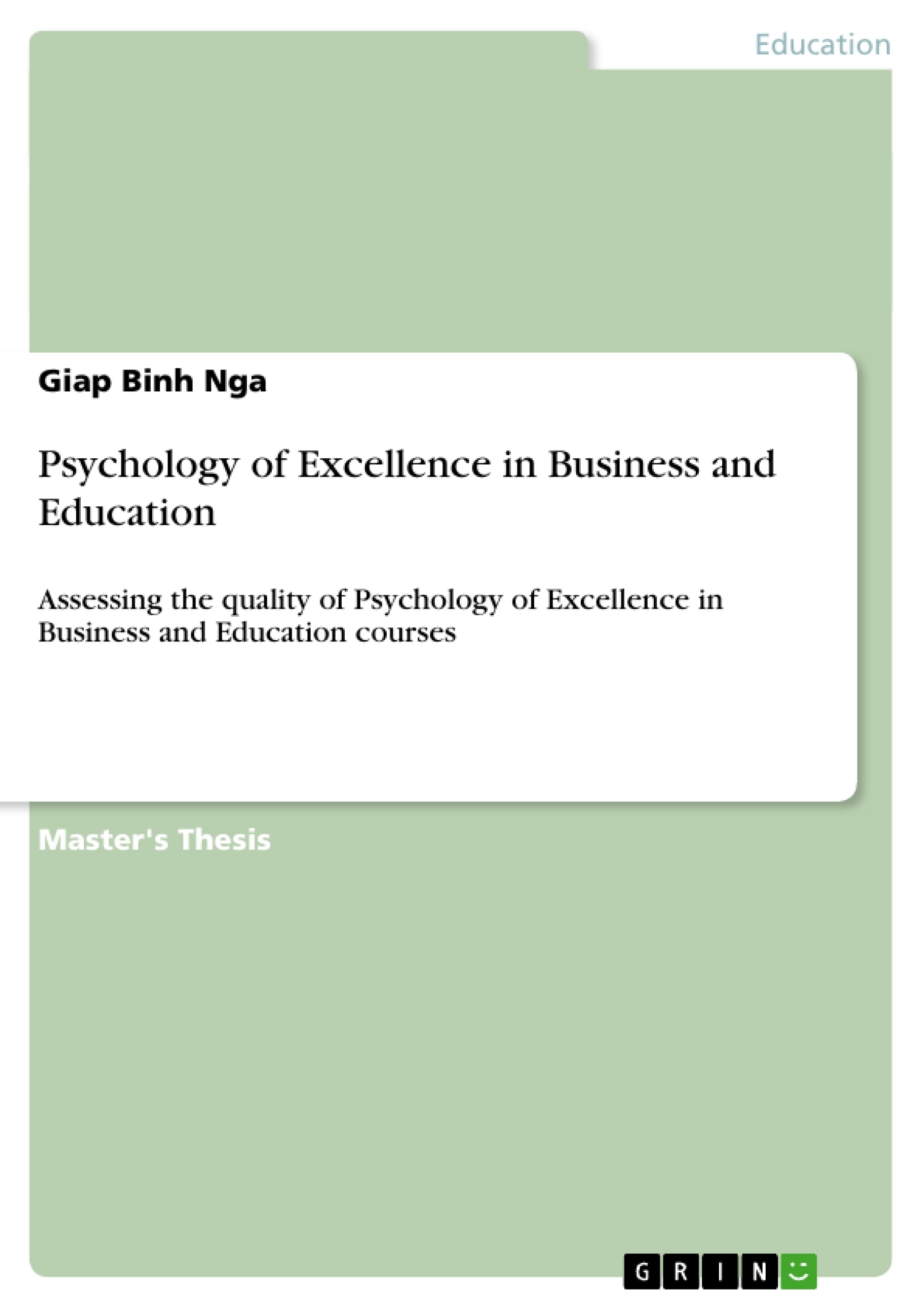In the present study a newly developed feedback form for college course evaluation (Feedback Form for the Excellence Courses: FFEC) is tested on a sample of participants of the courses of Psychology of Excellence in Business and Education (N = 200). FFEC addressed both issues of learning outcomes of a course and instructional qualities of teachers consisted of 5 dimensions: animating knowledge, promoting self-regulated learning, stimulating intellectual atmosphere, structuring the class, and establishing communication with students. Aside from its prospective practical purposes, FFEC showed very good psychometric properties, with regard to the internal consistency of subscales and overall factorial validity. As to concurrent construct validity, multiple regression analysis showed that subscales of FFEC accounted for 46% of variance in the overall course rating. Finally, the suggestions for the future use of FFEC are discussed.
Inhaltsverzeichnis (Table of Contents)
- Introduction
- Rationale for the Study
- Theory
- The scholarship of learning
- The scholarship of teaching and learning
- Formative student evaluations
- Summative student evaluations
- Analysing feedback
- Theories and questions guiding thesis
- Nine steps of instruction
- Learning outcomes
- Instructional materials
- A rational for nonstandardized instruments in course assessment
- Conducting course assessment with informally developed instruments
- Hypotheses
- Methods
- Participants
- Materials
- Statistics procedures and design
- Results
- Factor analysis
- Comparison of the courses
- Regression
- Discussion and conclusion
- Implication for theory
- Implication for practice
- Limitations
- Future directions
Zielsetzung und Themenschwerpunkte (Objectives and Key Themes)
This thesis aims to examine the quality of Psychology of Excellence in Business and Education courses at Ludwig-Maximilians-Universität München (LMU). The study seeks to understand students' perceptions of teaching quality and develop a reliable feedback form, ultimately contributing to improving the overall quality of the program. Key themes explored in this work include:- Assessment of teaching effectiveness in higher education
- Development and validation of a feedback instrument (FFEC)
- Student perceptions of teaching quality and their impact on learning
- Relationship between instructional qualities and learning outcomes
- Implications for improving course design and teaching practices
Zusammenfassung der Kapitel (Chapter Summaries)
- Chapter 1: Introduction This chapter establishes the rationale for the study, highlighting the growing importance of evaluating the quality of higher education programs and courses. The chapter reviews existing research on student ratings of teaching effectiveness and emphasizes the need for reliable feedback instruments to improve teaching quality.
- Chapter 2: Theory This chapter delves into the theoretical framework underpinning the study, examining various theories related to effective teaching, learning outcomes, and course evaluation. It explores the scholarship of learning and teaching, examines different types of student evaluations (formative and summative), and discusses the importance of analyzing feedback.
- Chapter 3: Methods This chapter outlines the research methodology used in the study, including details about the participants, materials, and statistical procedures employed.
- Chapter 4: Results This chapter presents the findings of the study, analyzing the data collected using the developed feedback form (FFEC). The chapter includes analyses of factor analysis, comparisons of courses, and regression results.
Schlüsselwörter (Keywords)
The study focuses on the key concepts of course evaluation, instructor quality, learning outcomes, instructional materials, and teaching effectiveness. The research delves into the development and validation of a feedback instrument (FFEC) to assess the quality of Psychology of Excellence in Business and Education courses at Ludwig-Maximilians-Universität München (LMU).- Citation du texte
- Giap Binh Nga (Auteur), 2006, Psychology of Excellence in Business and Education, Munich, GRIN Verlag, https://www.grin.com/document/232578




